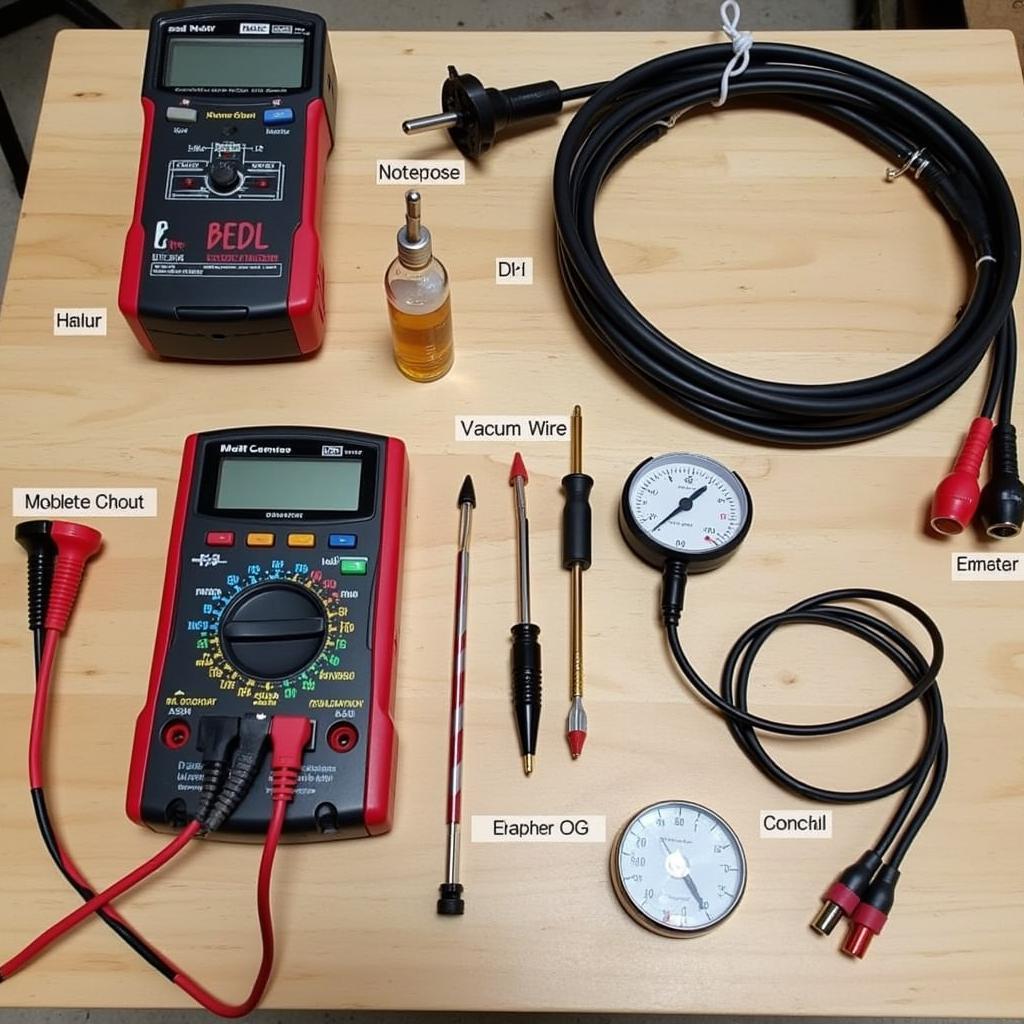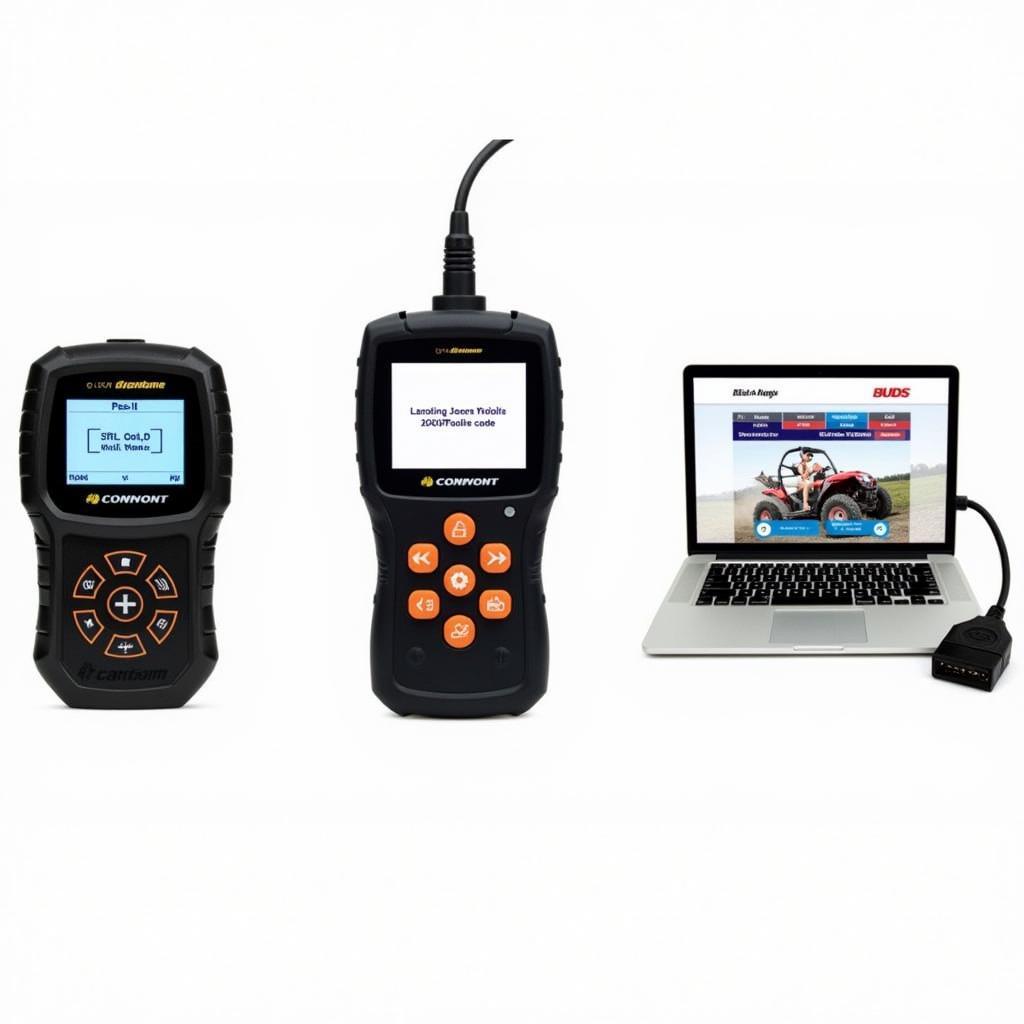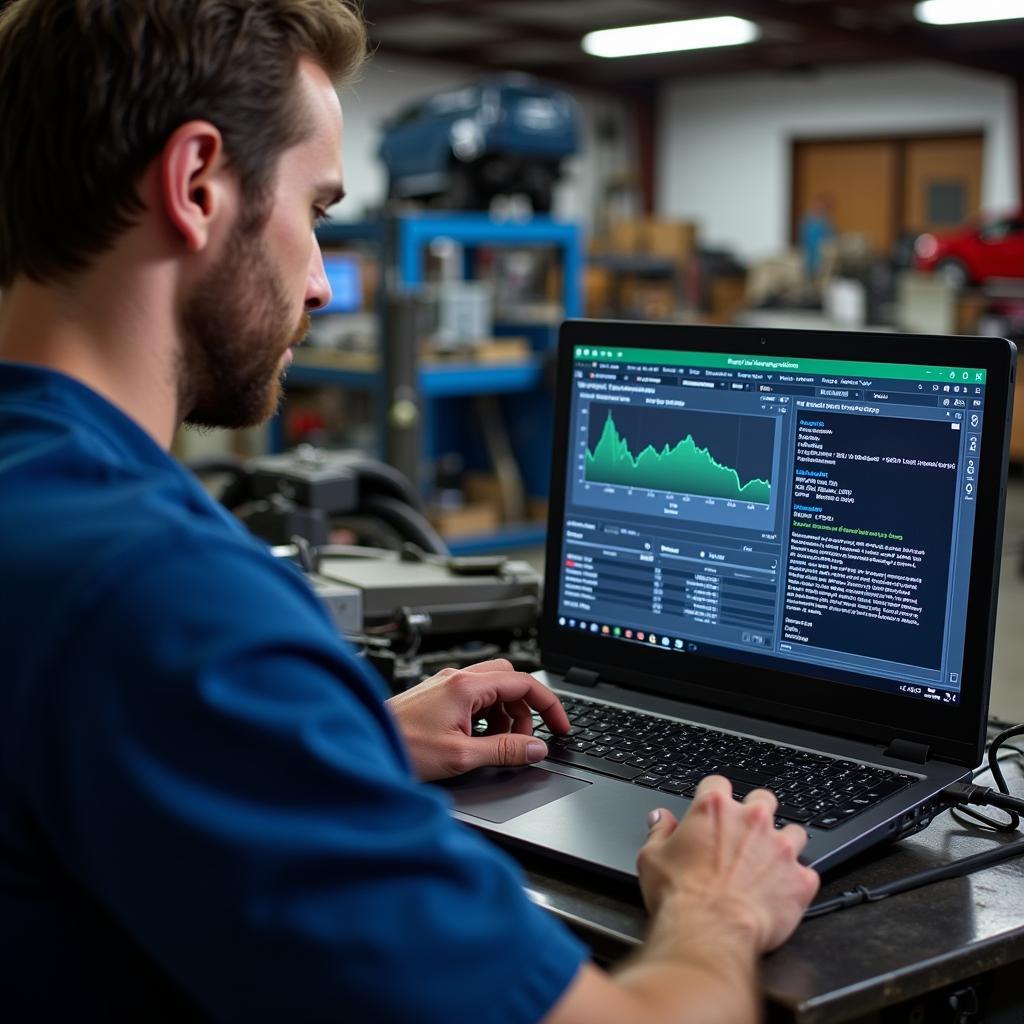Want to take control of your car repairs and skip expensive mechanic visits? Homemade Automotive Diagnostic Tools can be your secret weapon. These DIY solutions empower you to understand your car’s health, troubleshoot problems, and potentially save money on repairs. This guide explores the world of homemade diagnostic tools, offering insights and practical advice for car enthusiasts of all levels.
Why Invest in Homemade Diagnostic Tools?
 DIY car diagnostic tools spread out on a workbench
DIY car diagnostic tools spread out on a workbench
Before diving into the ‘how-to,’ let’s answer the ‘why.’ Understanding the benefits of homemade automotive diagnostic tools can motivate you to embrace this approach:
- Cost-Effectiveness: Commercial diagnostic tools can be expensive. DIY options utilize readily available, budget-friendly materials, making diagnostics accessible.
- Learning Opportunity: Building and using these tools provides hands-on experience and deepens your understanding of your car’s mechanics.
- Customization: Tailor your tools to your specific vehicle and needs.
- Empowerment: Diagnose and potentially fix issues yourself, fostering a sense of self-reliance.
Essential Homemade Diagnostic Tools You Can Build
Ready to roll up your sleeves? Here are some essential homemade automotive diagnostic tools you can create:
1. Circuit Tester with LED
- Materials: LED light, alligator clips, wires, a small probe
- Purpose: This simple tool helps you test for continuity in electrical circuits. Connect the LED tester to various points in your car’s wiring to check for power or ground signals.
2. Vacuum Gauge Tester
- Materials: Vacuum gauge, clear plastic tubing, adapters
- Purpose: Diagnosing vacuum leaks can be tricky. A vacuum gauge tester lets you monitor vacuum pressure in various parts of the engine, identifying leaks that can affect engine performance.
3. Spark Plug Tester
- Materials: Spark plug, insulated pliers, wire, alligator clip
- Purpose: Suspect a faulty spark plug? This tester helps you visually confirm if a spark plug is firing correctly outside the engine.
4. Fuel Pressure Tester (Caution Advised)
- Materials: Pressure gauge, fuel-resistant hose, adapters (Consult your car’s manual and seek professional guidance before attempting this)
- Purpose: This tool measures fuel pressure in the fuel system. However, working with fuel systems requires extreme caution due to flammability.
Safety Precautions When Using Homemade Tools
 Safety equipment laid out next to an open car engine.
Safety equipment laid out next to an open car engine.
While homemade tools offer numerous benefits, safety is paramount:
- Disconnect the Battery: Before working on your car’s electrical system, always disconnect the negative battery terminal to prevent electrical shocks.
- Wear Safety Gear: Protect your eyes with safety glasses and your hands with gloves.
- Work in a Well-Ventilated Area: Especially when dealing with fuel systems, ensure adequate ventilation to prevent the buildup of harmful fumes.
- Consult Your Car’s Manual: Always refer to your vehicle’s service manual for specific instructions and safety guidelines.
Taking Your Diagnostics Further
Remember, homemade tools are a starting point. For more complex issues, professional-grade diagnostic tools and software might be necessary. These tools provide advanced capabilities, such as:
- Reading and Clearing Error Codes: Retrieve and clear Diagnostic Trouble Codes (DTCs) stored in your car’s computer.
- Live Data Monitoring: Observe real-time data from various sensors in your car to analyze performance and identify irregularities.
Conclusion
Homemade automotive diagnostic tools can empower you to take charge of your car maintenance. From basic circuit testing to checking vacuum pressure, these DIY solutions offer valuable insights into your car’s health.
Remember, safety is paramount. When in doubt, always consult a qualified mechanic.
Need assistance choosing the right diagnostic tools for your needs? ScanToolUS is here to help. Contact us at +1 (641) 206-8880 or visit our office at 1615 S Laramie Ave, Cicero, IL 60804, USA.
FAQs
1. Are homemade diagnostic tools as accurate as professional ones?
While homemade tools can be effective for basic diagnostics, they might not offer the same accuracy and comprehensive analysis as professional-grade tools.
2. Can I use homemade tools to fix all car problems?
Homemade tools are helpful for basic diagnostics. However, complex repairs often require specialized equipment and expertise.
3. Where can I find reliable information for building homemade diagnostic tools?
Reputable online resources, automotive forums, and your car’s service manual can provide guidance on building effective tools.
4. What should I do if I identify a problem using a homemade tool but can’t fix it myself?
Consult a qualified mechanic to diagnose and repair the issue properly.
5. Are there any legal concerns with using homemade diagnostic tools on my car?
Using homemade tools for personal diagnostics is generally acceptable. However, it’s crucial to follow safety guidelines and refrain from making unauthorized modifications that could violate local regulations or impact your car’s warranty.


